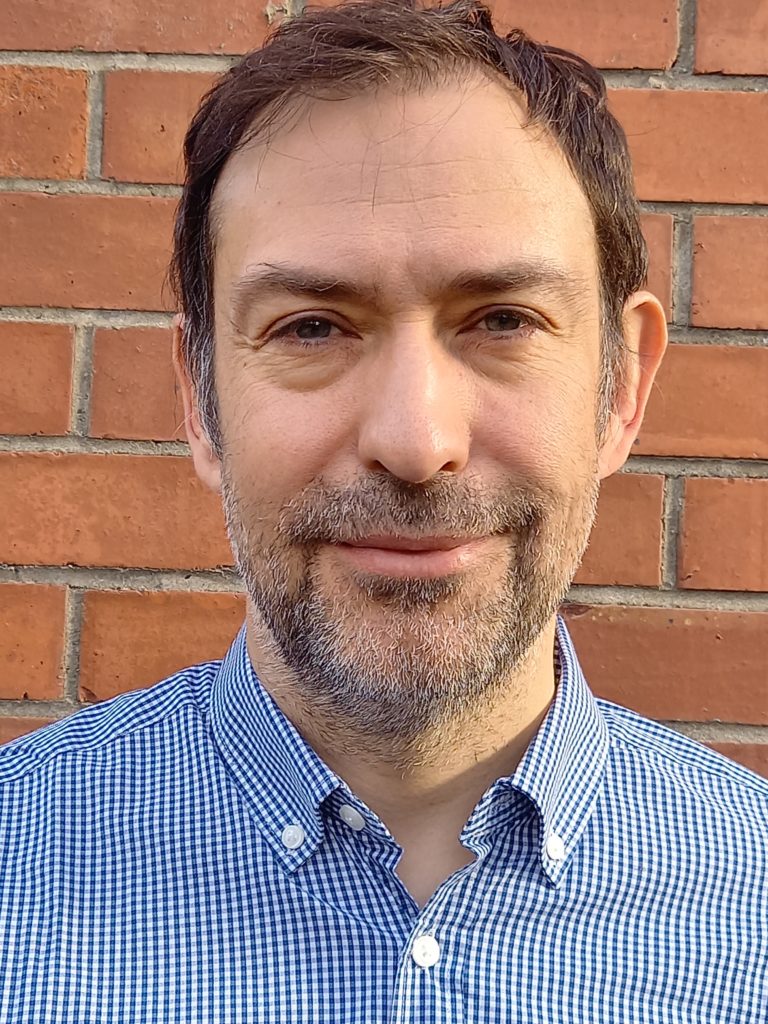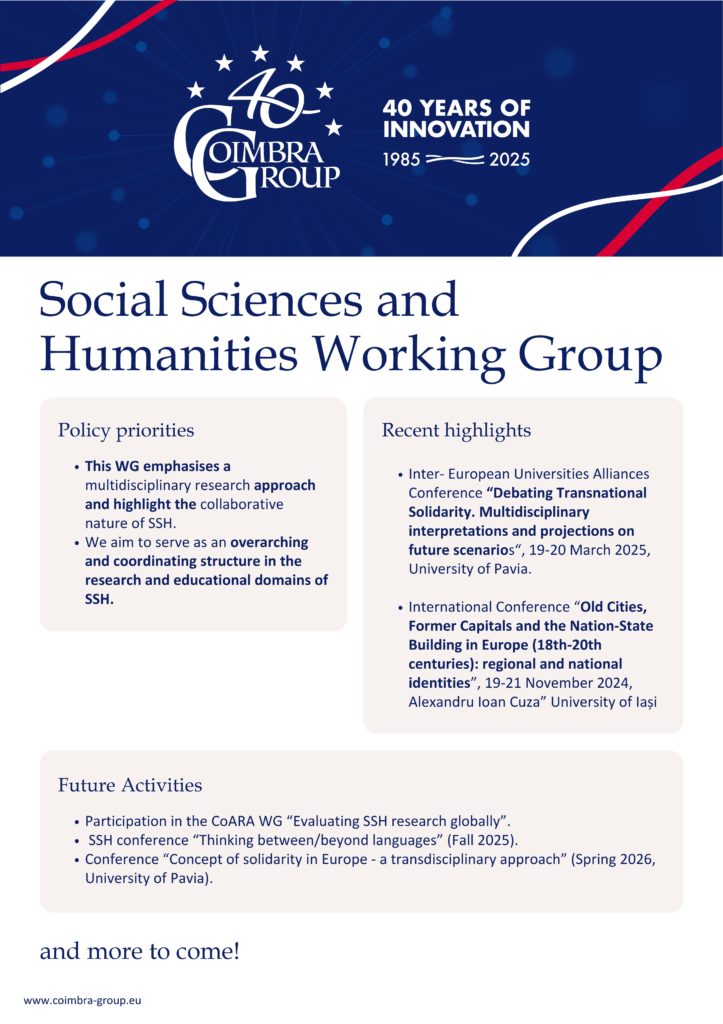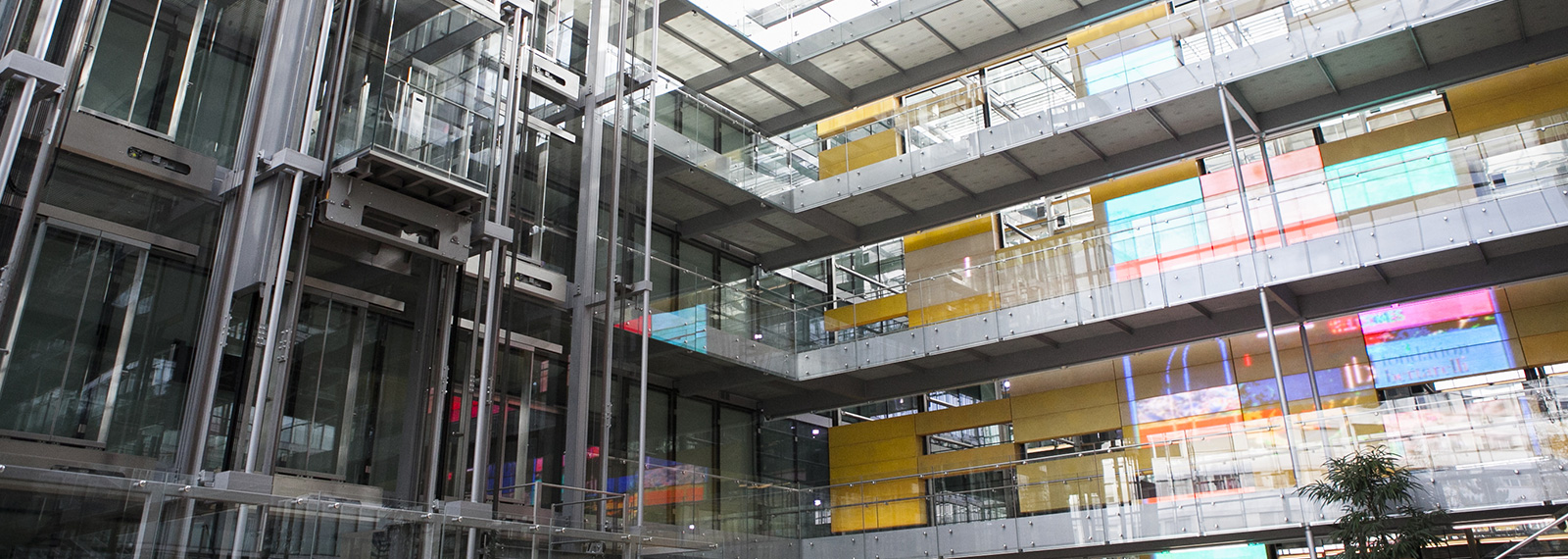Social Sciences & Humanities
Working Group
Chair: Ilaria Poggiolini

Ilaria Poggiolini is Chair Professor of International History and former Pro-Chancellor for International Relations at the University of Pavia. She is a member of the teaching staff of the University’s Doctorate Programme in History and of the Committee for the publication of Italian Diplomatic Documents (Italian MFA, Rome) and Associate of Italian Studies at Oxford. She is WP Co-Leader for the EC2U Aliance. She has recently published a book reassessing the history of Britain in and out of the EC/EU. She teaches in Italian and in English: History of International Relations, European integration and Public Diplomacy.
Vice Chair: Balázs Apor

Dr Balázs Apor is associate professor in European Studies in the School of Languages, Literatures and Cultural Studies at Trinity College Dublin. His research interests include the Sovietisation of Eastern Europe after World War II and the cultic veneration of communist leaders. Most recently, his work focuses on the legacies of communism and cultural forms of opposition in post-communist Hungary. He is founder and Director of the Trinity Centre for Resistance Studies at Trinity College Dublin.
Working Group Focus
The Coimbra Group Social Sciences and Humanities (SSH) Working Group (WG) will continue its focus on tasks and activities related to research and education, as well as outreach and visibility. Its primary objective will be to support the SSH research initiatives of member universities. To achieve this, the WG will organize multidisciplinary seminars, roundtables and conferences on key themes—such as the role of AI and languages in research—related to the future of SSH disciplines in the context of pressing social challenges. The WG aims to participate in policy-related debates at European level with the aim of bringing together the contributions of member universities and provoke fresh debates about the value of our disciplines..
Priorities for 2025-2026
- Organise academic events on key topics relevant to the network..
- Exploring future inter-European University Alliances activities.
- Discuss pressing issues concerning the current state and future of the SSH in Europe.
- Gaining a deeper understanding of local challenges faced by CG Universities.
- Engage actively in the European policy and research debates on SSH.
- Highlight Europe’s potential to be a safe hub for SSH and foster connections with non-EU partners.
Recent highlights since June 2024
- Call for papers (link) and organisation of Inter- European Universities Alliances Conference “Debating Transnational Solidarity. Multidisciplinary interpretations and projections on future scenarios“, 19-20 March 2025, University of Pavia.
- Call for papers (link) and organisation of International Conference “Old Cities, Former Capitals and the Nation-State Building in Europe (18th-20th centuries): regional and national identities”, 19-21 November 2024, Alexandru Ioan Cuza” University of Iași.
- Call for Papers on “AI currents and European Universities” (link), September 2024.
Ongoing/forthcoming activities 2025-2026
- Participate in the CoARA WG “Evaluating SSH research globally”.
- Explore opportunities for collaboration with the European Alliance for Social Sciences and Humanities (EASSH).
- Prepare an event focusing on the use of languages in scholarship in SSH disciplines.
- Develop the concept of “SSH WG Roadshow” discussions and organise the first event in spring 2026.
- Continue active participation in Coimbra Group’s inter-WG group on AI.

Contact person at the CG Office: Stefania Parnici (parnici@coimbra-group.eu)


